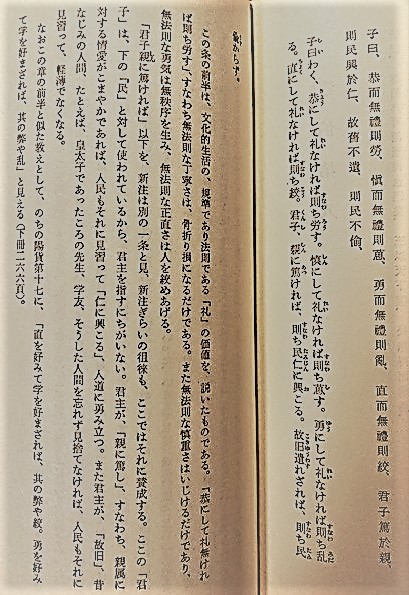
「論語」。多くの人は読んでいない。かつ、人々は封建道徳として自信を持って非難する。読んでいる人も最初の30ページほどの読書、または偏向した要約を読んだだけ。
「老いたるかな我、夢に周公を見ず」この文は後半に出てくる美しい言葉、しかし誰も知らない言葉。つまり後半まで丹念に読んだ人は稀。
私はこの本で孔子の実像と対話を試みる。孔子の著書ではなく、そばにいた人の編集した本である。すぐれた編集である。吉川幸次郎の注釈は戦後の民主主義との調和を志向してい、私は大好きであり、他の注釈は嫌いである。
"The Analects". Many people haven't read it. And people confidently blame it as feudal morality. They just read the first 30 pages or so, or a biased summary.
"I'm old, I don't see Zhou in my dreams." This sentence is a beautiful word that appears in the second half, but no one knows it. In other words, it is rare for people to read it carefully until the second half.
I try to talk with the real image of Confucius in this book. It is not a book by Confucius, but a book edited by a person who was by his side. Excellent editing. Kojiro Yoshikawa's annotations are oriented towards harmony with postwar democracy, I love them, and I hate other annotations.
《论语》。 很多人没读过。 人们自信地将其归咎于封建道德。 读者只需阅读前 30 页左右,或有偏见的摘要。
“我老了,梦里见不到周了。”这句话是下半场出现的一个美字,却无人知晓。 换句话说,人们很少仔细阅读它,直到下半场。
我试图在这本书中讲述孔子的真实形象。 这不是孔子的书,而是我身边的人编辑的书。 优秀的编辑。 Kojiro Yoshikawa 的注释面向与战后民主的和谐,我喜欢它们,我讨厌其他注释。


